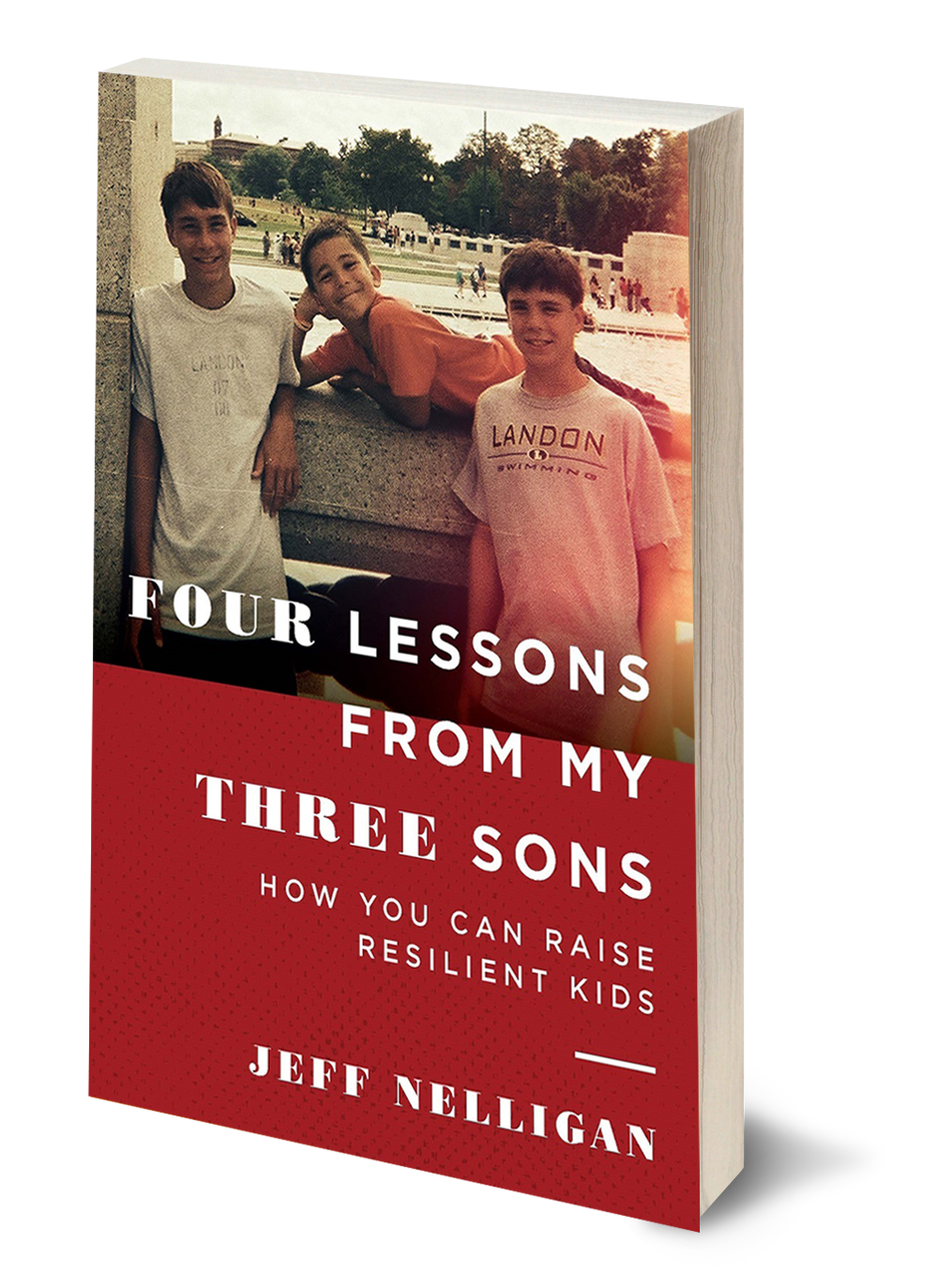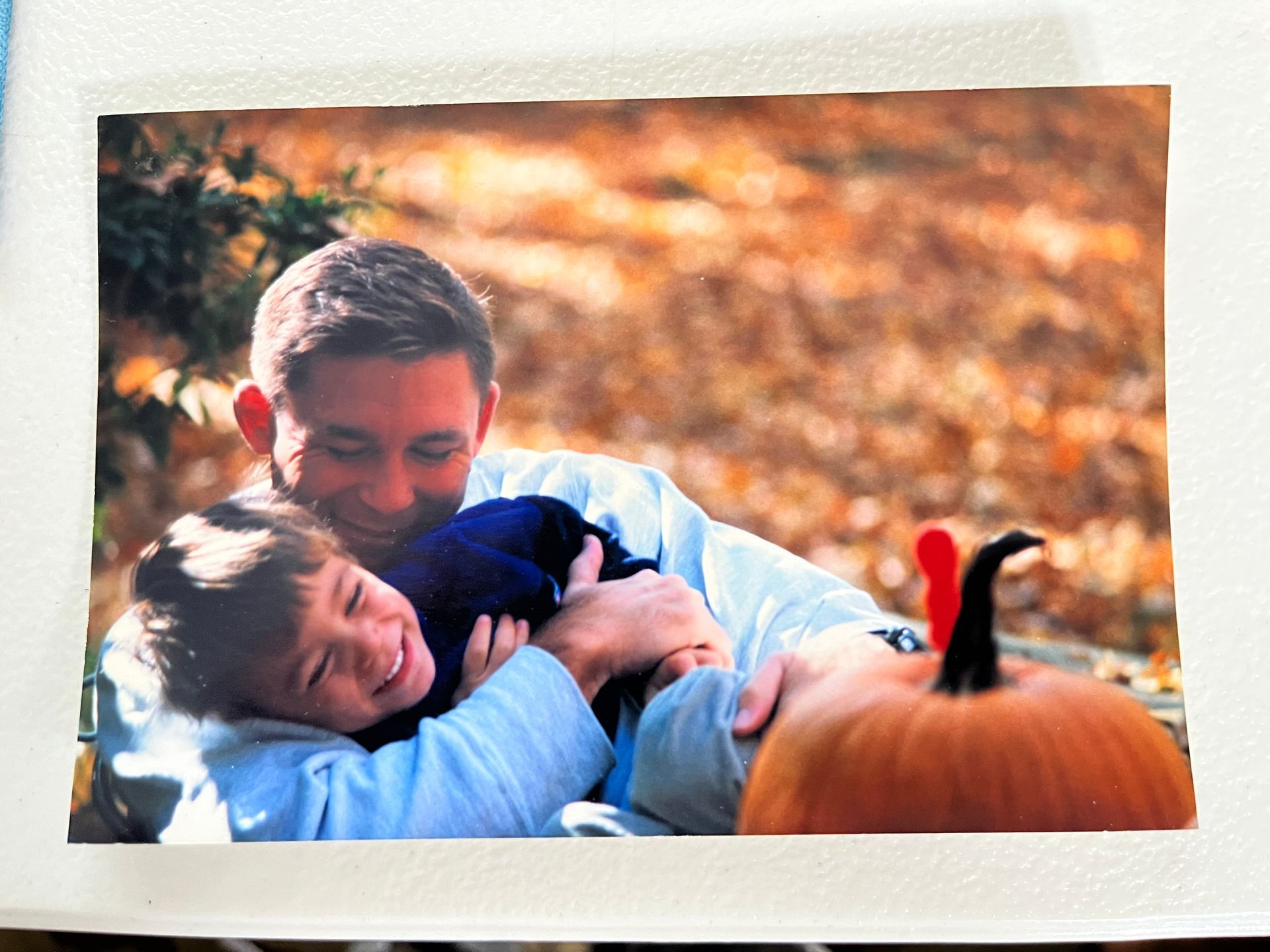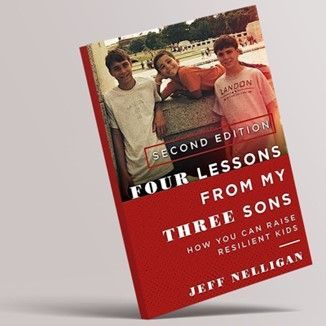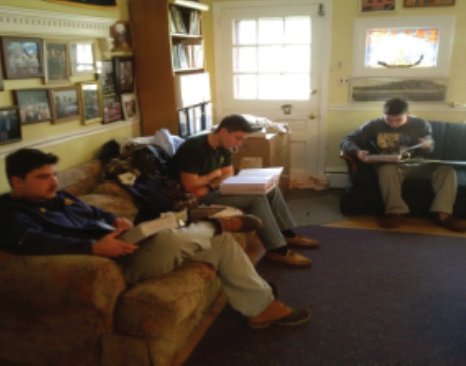Cultivate self-awareness
"Just get the ball to Louie!"
The most remarkable coach the boys ever had was a guy named Mark Dubick, a neighbor and a former member of the high-powered University of Maryland lacrosse team. The boys were aware of my total respect for the guy and once when the three of us were driving home from a practice the eldest son asked, “Dad, why do you like Coach Dubick so much?” “Because he’s exactly like Drill Sergeant Harrison,” I responded, “Except Coach is short, white, and Jewish.”
Dubick personally selected a 20-member premier travel lacrosse team from about 150 kids at a day-long tryout. Yes, consider that wonder of wonders in this age:
A high-pressure “competition” where kids were harshly “judged” on their “abilities” and those that came up short were “cut.” That is, a setting before which every boy had practiced endless hours and weeks and months trying to improve their skills so they could make this team.
Just think of it: No equality, just quality. No inclusion; in fact, exclusion for about 130 kids. And the only “equity” was that after the tryout the 150 boys and their parents were all notified of the results at the same exact time. Every kid, including my middle son, who made the final roster, was very good; there was one kid who was great – Louie, Coach Dubick’s son.
When things got tight in a game there was one hoarse, penetrating yell you could count on: “Just get the ball to Louie!” In my mind’s eye I can still hear it and see an unshaven Coach Dubick gesturing wildly with his clipboard. Far from being some crazed Dad he was exactly right. Louie was that rare player who could score at crunch time. He was one reason the team was 37-1-1. When the heat was on Louie gave us the best chance to win and every kid and parent knew it.
Driving back from games, we’d talk about it all and sometimes mimic Coach Dubick. It wasn’t in jest because we all respected the guy.
It was a classic phrase and one day the old man decided to make a point. “You know boys, we always hear Coach yelling for Louie when the team’s in a hole. But you know why? Because,” and here I pointed at my son, Louie’s teammate, “We know what he can do and you can’t do. Louie scores when it’s all on the line and you can’t. Sure, you’re good and that’s why you’re on Dubick’s team. But the key here is, in any kind of situation you are in, you have to know how you
fit into it all, how you can help the overall effort. You have to be self-aware and that means when you’re on the field and losing you gotta work to get the ball to Louie.”
As we discussed what I’d said, the explanation slowly began to make sense to them. The boys, like most kids their age, were in all sorts of school and social activities at the time and they intuitively knew how comfortable or uncomfortable they were in these settings. The idea about knowing their role and phrase slowly began to resonate with them; it gave them a foothold on grasping where and how they stood in the various stuff they did.
Indeed, that’s a big part of a girl’s or boy’s life: Understanding how they fit in.
And let me emphasize, this is a landscape way beyond the athletic fields – it’s the whole adolescent world.
The settings are obvious: In a classroom it means respectful behavior and really trying. In social situations, knowing your role means getting along, being genuine, contributing to a peer group with conversation and humor but also listening more than speaking. Self-awareness marks that kid who knows himself or herself and hence doesn’t yield to the pressure to do something stupid.
One of the most important conversations I ever had with my eldest son consisted of nine words. He called me from a friend’s house at 10 p.m. one evening, an hour before I was to pick him up. “Dad, you need to come get me right now.” Driving him home, my son explained that some unknown kids had showed up at the house and started drinking. My kid panicked: Totally illegal behavior, parents letting it slide, underage kids getting drunk and driving. Maybe the police. He knew his role alright – get the hell out of there.
He knew that if the worst happened and it often does, that he’d be caught up in this whole scene. And then forget it: Forget all the achievements; forget the work in the class and on the fields. It wouldn’t be an asterisk on his record, it would be a big red check mark.
The point is, a kid who has this perspective on his surroundings - who is truly self-aware – will intuitively know the next, right step and is not going to find himself or herself in a bad situation.
The older they got the more they were beginning to think for themselves, and a few times that meant big- time reproach for the old man (I told you I’d be brutally honest). When the eldest was in 9th grade, I goaded him - there’s no other word - about running for a student government office at school. “Hey man, you have a lot of friends, you’re a pretty good talker, you really oughta run for something.” He kept demurring and of course, irritating Dad that I was, I kept at it, not even considering that he was fine with who he was at school and what he was doing.
Then one day in the midst of another round of my nagging he looked at me long and hard and said, “Dad, I’m getting the ball to Louie.” I was stunned, and silenced. And that was that.
####











